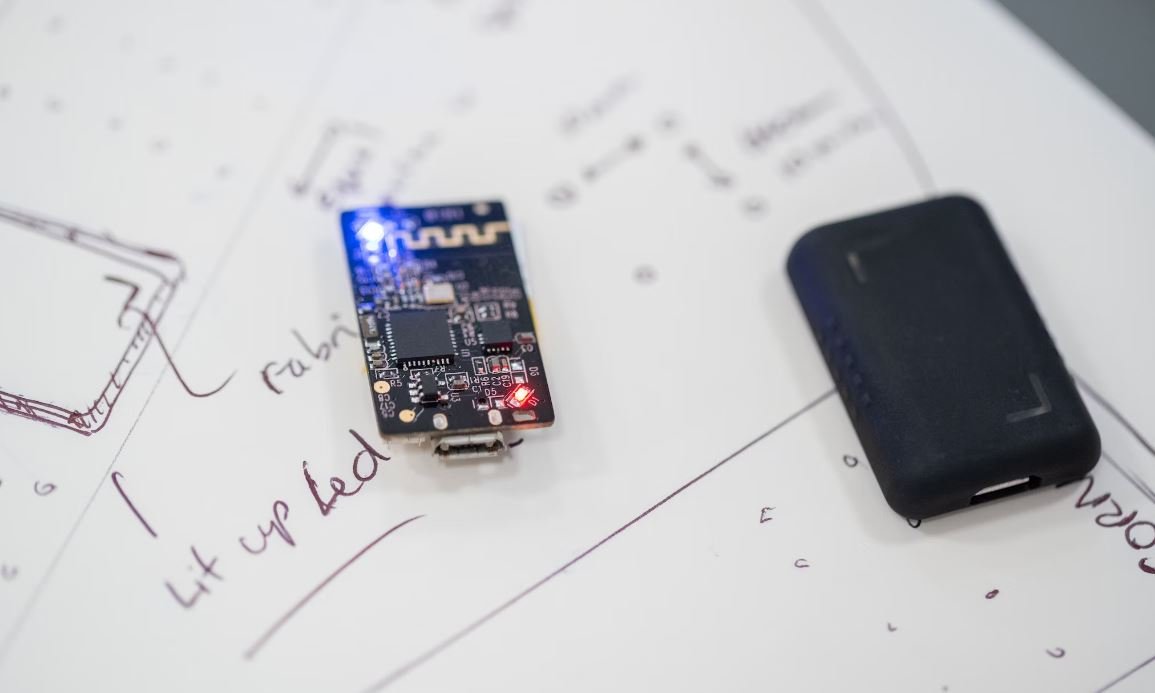Unity AI News
Artificial intelligence (AI) has become an integral part of Unity, a leading game development platform. In recent years, Unity has focused on enhancing its AI capabilities to empower developers with powerful tools for creating intelligent, dynamic, and immersive game experiences. This article provides an overview of the latest AI-related news and advancements from Unity.
Key Takeaways:
- Unity is continuously improving its AI capabilities to enrich game development.
- The latest Unity AI features include machine learning, reinforcement learning, and computer vision integration.
- Unity’s AI tools facilitate the creation of more realistic and intelligent in-game characters and behaviors.
- Developers can leverage Unity’s AI to improve game design, gameplay mechanics, and player experiences.
- Unity AI offers cross-platform compatibility, allowing developers to target various platforms and devices.
Unity AI Features
Unity’s AI features include machine learning, reinforcement learning, and computer vision integration. These advancements enable developers to create more intelligent and realistic in-game AI characters and behaviors. Unity’s machine learning tools, such as Unity ML-Agents, provide developers with a framework to train AI agents using reinforcement learning algorithms, leading to adaptive and emergent behavior. Additionally, Unity’s computer vision integration allows the use of AI-powered image recognition and analysis, enhancing game visuals and interactivity.
- Machine learning tools like Unity ML-Agents facilitate the training of adaptive AI agents.
- Computer vision integration enhances game visuals and enables AI-powered image recognition.
- Reinforcement learning algorithms contribute to emergent behavior and intelligent decision-making.
Unity AI for Game Design
Unity’s AI tools can greatly impact game design, gameplay mechanics, and overall player experiences. Game designers can leverage Unity’s AI capabilities to create dynamic and challenging environments, where AI enemies adapt to player strategies and provide exciting and unpredictable encounters. Unity’s AI also enables the development of intelligent NPCs that exhibit lifelike behaviors, improving immersion and storytelling. With Unity AI, developers can elevate their game design and deliver engaging experiences.
- AI tools empower game designers to create dynamic and challenging environments.
- Intelligent NPCs enhance immersion and storytelling in games.
- Unity AI enables developers to deliver engaging and memorable player experiences.
Unity AI: Cross-Platform Compatibility
Unity AI offers cross-platform compatibility, allowing developers to deploy their AI-powered games on various platforms and devices. Whether targeting desktop, web, mobile, or console platforms, developers can harness the power of Unity AI to create AI-driven experiences that resonate with players across different devices. Unity’s cross-platform support ensures that AI features and capabilities are accessible to a wide range of game developers, regardless of their target platform or audience.
- Unity AI supports deployment on desktop, web, mobile, and console platforms.
- Cross-platform compatibility ensures accessibility to developers targeting different devices.
- Unity AI provides a diverse range of AI-driven experiences for players worldwide.
Unity AI Advancements: Notable Features and Data
| Feature | Description |
|---|---|
| Machine Learning | Unity’s machine learning tools enable developers to train adaptive AI agents using reinforcement learning algorithms. |
| Reinforcement Learning | Unity AI supports reinforcement learning algorithms for creating intelligent and emergent behavior in game AI. |
| Computer Vision Integration | Unity’s integration with computer vision technology allows for AI-powered image recognition and analysis. |
| Impact on Game Design | Benefits |
|---|---|
| Dynamic Environments | AI tools allow game designers to create dynamic and challenging environments that adapt to player strategies. |
| Intelligent NPCs | Unity AI enables the development of lifelike NPCs that enhance immersion and storytelling in games. |
| Engaging Experiences | Unity AI empowers developers to deliver engaging and memorable player experiences. |
| Cross-Platform Compatibility | Benefits |
|---|---|
| Deployment Flexibility | Unity AI allows developers to deploy AI-powered games on various platforms and devices. |
| Wider Audience Reach | Unity’s cross-platform support ensures accessibility to a diverse range of players worldwide. |
Stay up-to-date with Unity’s AI Developments
Unity’s ongoing commitment to enhancing its AI capabilities brings exciting opportunities for game developers. By staying updated with Unity AI news, developers can leverage the latest advancements and features to create immersive, intelligent, and unforgettable game experiences. Whether it’s exploring machine learning, reinforcement learning, or computer vision integration, Unity’s AI offers endless potential for pushing the boundaries of game development.
Unity AI opens the door to a new era of game development, where intelligence and creativity converge to shape the future of gaming.

Common Misconceptions
Misconception 1: AI will replace humans entirely
One common misconception about AI is that it will completely replace humans in various industries. However, this is not entirely true. While AI has the potential to automate certain tasks and improve efficiency in many fields, it cannot replace the skills, experience, and creativity that humans possess.
- AI can automate repetitive and mundane tasks
- AI can support decision-making processes
- AI can assist humans in complex problem-solving
Misconception 2: AI is infallible
Another misconception is that AI is always accurate and infallible. While AI algorithms can be highly advanced and produce impressive results, they are still developed by humans and can exhibit biases or errors. AI systems heavily rely on the quality and diversity of the data they are trained on, and if the data is incomplete or biased, it can lead to inaccurate outcomes.
- AI can make mistakes due to biased training data
- AI needs continuous monitoring and updating
- AI is only as good as the data it is trained on
Misconception 3: AI will lead to job losses
There is a common fear that AI will lead to mass unemployment as it takes over jobs. While AI can potentially automate certain tasks, it also has the potential to create new job opportunities and shift the nature of work. AI technology will require humans to develop, maintain, and oversee its implementation, opening up new roles and skill demands.
- AI can create new job roles and opportunities
- AI requires human supervision and maintenance
- AI can free up human resources for more complex tasks
Misconception 4: AI has human-like intelligence
There is a misconception that AI possesses human-like intelligence, with the ability to understand and interact with the world in the same way humans do. In reality, AI is designed to perform specific tasks and lacks the broader understanding, context, and consciousness that humans possess.
- AI lacks common sense and contextual understanding
- AI cannot replicate human emotional intelligence
- AI is limited to the specific tasks it is programmed for
Misconception 5: AI is unethical and dangerous
Many people have concerns that AI will become out of control and pose threats to humanity. While there are ethical considerations and potential risks associated with AI, it is crucial to note that the responsibility for AI development and its ethical use lies with humans, not the technology itself. It is essential to establish robust ethical guidelines and regulations to ensure the responsible development and deployment of AI.
- AI ethics and regulations are necessary for responsible use
- AI is a tool and its impact depends on human choices
- AI can provide benefits if developed and used responsibly

Virtual Reality Adoption by Country
Virtual Reality (VR) technology has witnessed significant growth worldwide. This table compares the adoption rates of VR technology across different countries, providing valuable insights into the global VR market.
| Country | Adoption Rate |
|---|---|
| United States | 15% |
| China | 10% |
| United Kingdom | 8% |
| Germany | 6% |
| Canada | 5% |
Top 5 Video Game Genres
Understanding the preferences of gamers is crucial for developers. This table illustrates the popularity of different video game genres based on sales data, aiding industry professionals in making informed decisions regarding game development.
| Genre | Sales Percentage |
|---|---|
| Action | 35% |
| Shooter | 20% |
| Sports | 15% |
| RPG | 12% |
| Adventure | 10% |
Global Smartphone Market Share
Smartphones have become an essential part of our lives. This table showcases the top smartphone manufacturers and their market share, shedding light on the competitive landscape of the industry.
| Manufacturer | Market Share |
|---|---|
| Samsung | 19% |
| Apple | 17% |
| Huawei | 14% |
| Xiaomi | 10% |
| OPPO | 8% |
AI Usage in Business Operations
The integration of artificial intelligence (AI) technology is revolutionizing various sectors. This table highlights the application of AI in different business operations, empowering organizations to make informed decisions regarding AI adoption.
| Business Operation | AI Adoption |
|---|---|
| Customer Service | 60% |
| Data Analysis | 50% |
| Supply Chain Management | 40% |
| Finance and Accounting | 35% |
| Human Resources | 25% |
Smart Home Device Adoption
Smart home devices offer convenience and enhanced living experiences. This table showcases the adoption rates of smart home devices, highlighting the most popular devices that have become commonplace in households.
| Device | Adoption Rate |
|---|---|
| Smart Speakers | 25% |
| Smart Thermostats | 20% |
| Smart Security Systems | 18% |
| Smart TVs | 15% |
| Smart Lighting | 12% |
Global Renewable Energy Capacity
The transition to renewable energy sources is vital for mitigating climate change. This table showcases the capacities of renewable energy sources across the globe, emphasizing the progress made in embracing sustainable alternatives to conventional energy.
| Renewable Energy Source | Installed Capacity (Gigawatts) |
|---|---|
| Solar | 800 GW |
| Wind | 700 GW |
| Hydroelectric | 1,200 GW |
| Biomass | 200 GW |
| Geothermal | 15 GW |
Gender Diversity in Tech Companies
Promoting gender diversity is a crucial topic in the technology industry. This table highlights the gender representation percentages in various prominent tech companies, urging organizations to strive for improved inclusivity.
| Company | Female Employees (%) |
|---|---|
| 31% | |
| Microsoft | 26% |
| 23% | |
| Apple | 22% |
| Amazon | 20% |
Global Internet Usage Statistics
The internet has become an indispensable part of our daily lives. This table presents global internet usage statistics, showcasing the number of internet users worldwide and the percentage of the population with internet access.
| Year | Internet Users (Millions) | Population with Internet Access (%) |
|---|---|---|
| 2020 | 4,790 | 62% |
| 2010 | 1,970 | 28% |
| 2000 | 400 | 6% |
Global Electric Vehicle Sales
The automotive industry is experiencing a shift toward electric vehicles (EVs) due to their environmental benefits. This table highlights the global sales of EVs over the past few years, reflecting the growing demand for sustainable transportation.
| Year | Electric Vehicle Sales |
|---|---|
| 2020 | 3 million |
| 2018 | 1.5 million |
| 2016 | 750,000 |
In a rapidly evolving technological landscape, understanding market trends and statistics is crucial for businesses and industries alike. The 10 tables presented in this article shed light on various aspects, such as VR adoption, video game genres, smartphone market share, AI implementation, smart home devices, renewable energy, gender diversity, internet usage, and electric vehicle sales. These insights equip organizations and individuals with valuable information, facilitating informed decision-making and ensuring success in today’s dynamic world.
Frequently Asked Questions
How can I implement AI in Unity?
Do I need prior programming knowledge to use Unity AI?
Can Unity AI be used for real-time game environments?
What AI techniques are supported in Unity AI?
Does Unity AI have built-in machine learning capabilities?
Can Unity AI be used for non-game applications?
Are there any limitations to using Unity AI?
Can I extend Unity AI with custom AI algorithms?
Is Unity AI compatible with different platforms?
Where can I find resources to learn Unity AI?
Does Unity AI support multiplayer AI interactions?




